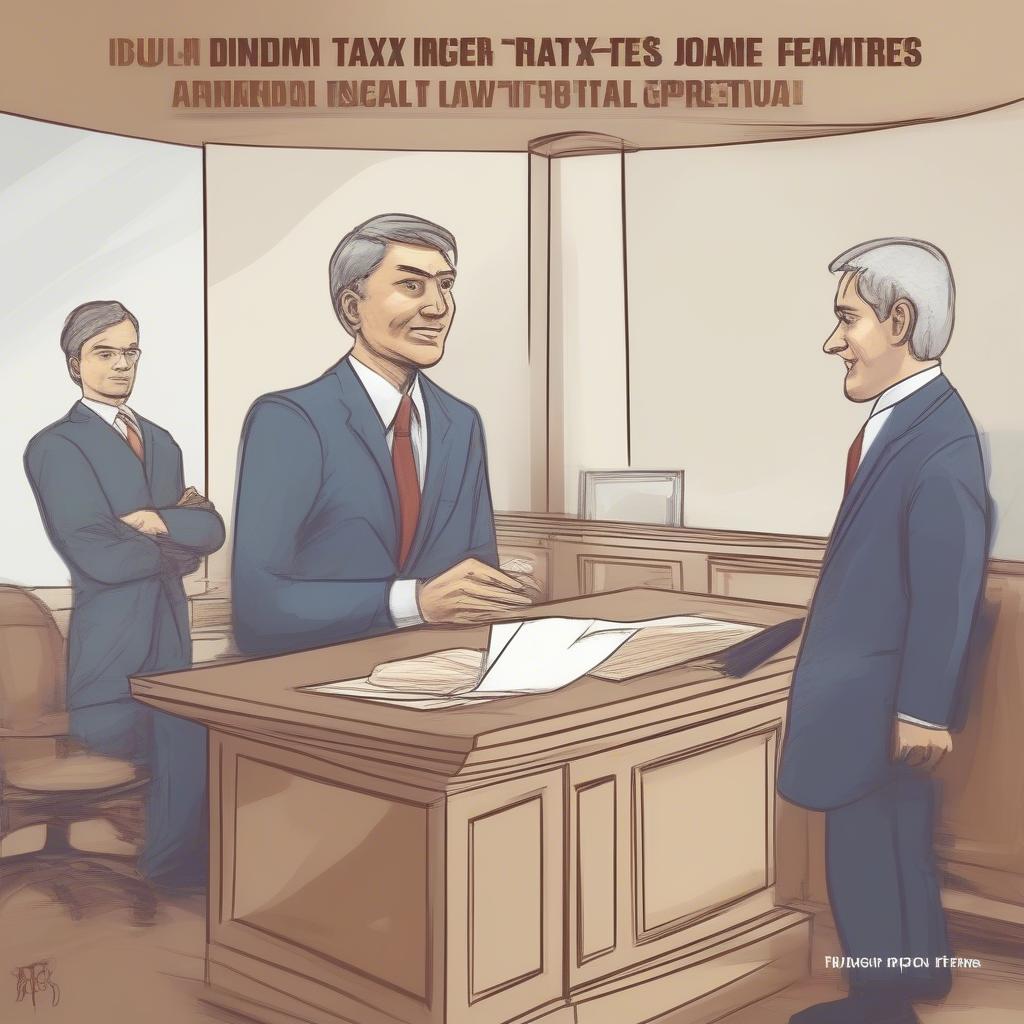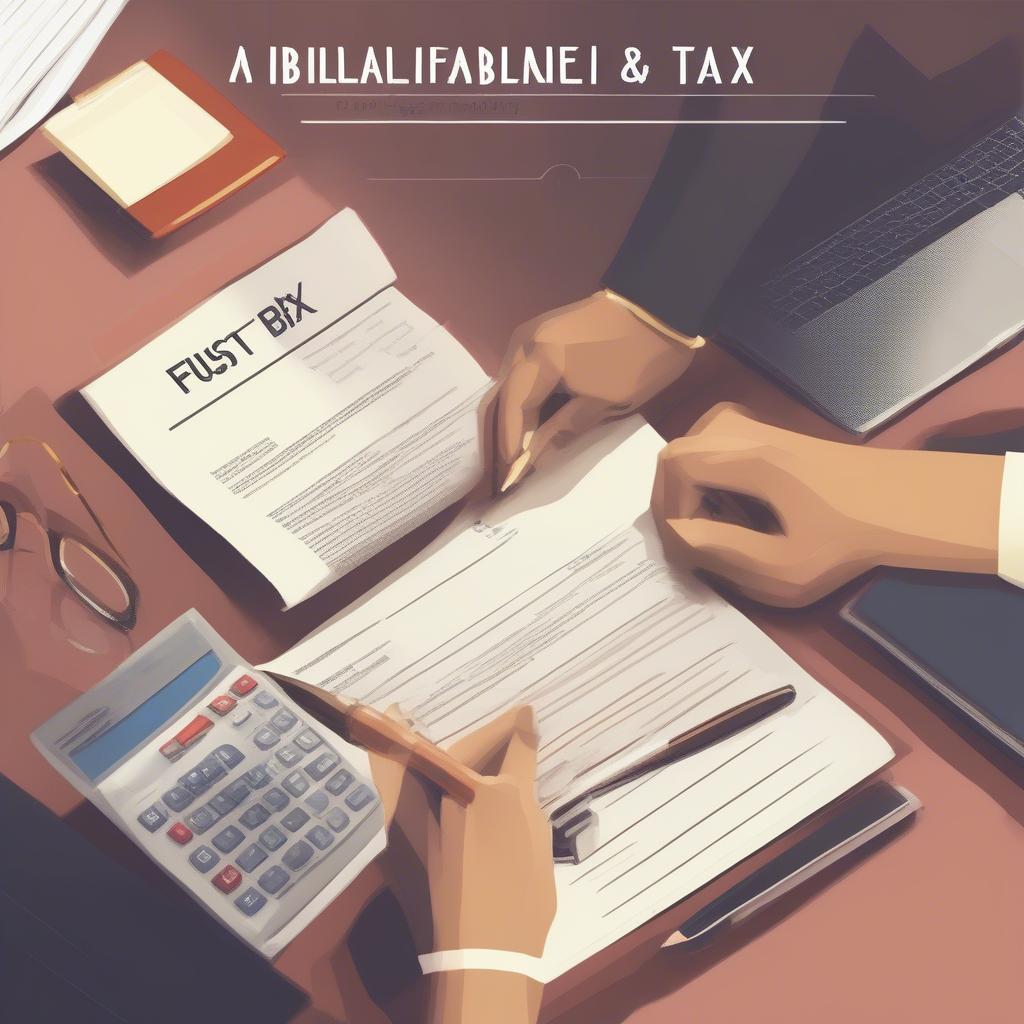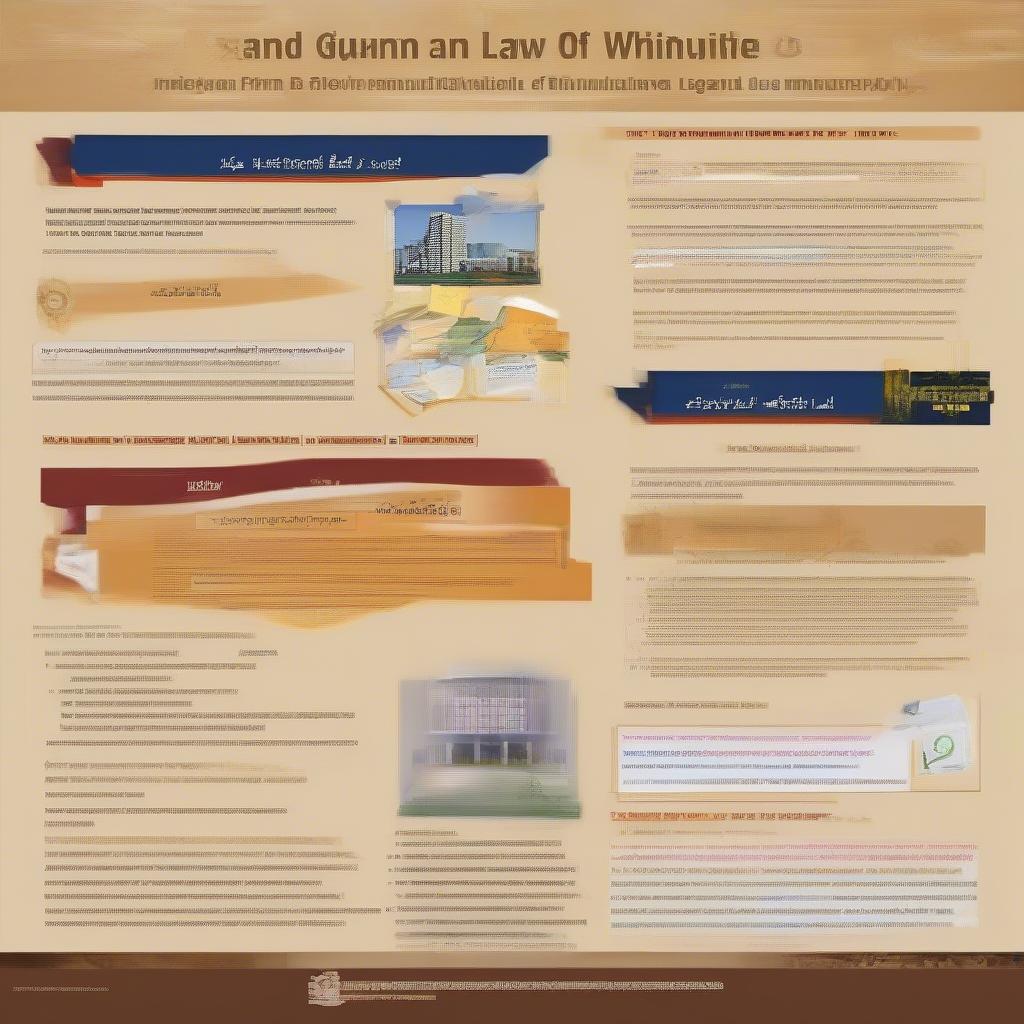LAW UPDATES
Subsistence-allowance
Subsistence Allowance Under the Code of Civil Procedure (CPC) in India Subsistence allowance, a crucial aspect of civil procedure, ensures the basic survival needs of a judgment-de...
Prohibition of arrest or detention of women in execution of decree for money
Prohibition of Arrest or Detention of Women in Execution of Decree for Money under the CPC The Code of Civil Procedure, 1908 (CPC) is a comprehensive procedural law that governs th...
Arrest and detention
Arrest and Detention under the Code of Criminal Procedure (CrPC) Arrest and detention are critical aspects of the criminal justice system, deeply impacting individual liberty. The ...
Partition of estate or separation of share
Partition of Estate or Separation of Share under CPC (India) Introduction The partition of an estate or the separation of a share is a crucial aspect of property law in India, ofte...
Liability of ancestral property
Liability of Ancestral Property Under the Code of Civil Procedure (CPC) in India The concept of ancestral property plays a significant role in Indian family law, particularly conce...
Enforcement of decree against legal representative
Enforcement of Decree Against Legal Representative Under the Code of Civil Procedure, 1908 (CPC) The Code of Civil Procedure, 1908 (CPC) lays down the procedures for the enforcemen...
Powers of Court to enforce execution
Powers of Court to Enforce Execution under the Code of Civil Procedure (CPC) Execution is the process by which a decree-holder enforces a judgment against a judgment-debtor, compel...
Legal representative
Understanding the Role of a Legal Representative in India (Under CPC) In India, the Code of Civil Procedure (CPC), 1908, governs the procedures followed in civil courts. Within thi...
Transferee
Understanding the "Transferee" Under the Code of Civil Procedure (CPC) in India The Code of Civil Procedure, 1908 (CPC), forms the bedrock of procedural law in India, gov...
Precepts.
Precepts Under the Code of Civil Procedure, 1908 (CPC) Precepts, as defined under the Code of Civil Procedure, 1908 (CPC), represent a crucial mechanism enabling a decree-holder to...
Execution of decrees outside India.
Execution of Decrees Outside India: A Comprehensive Guide Under the CPC The Code of Civil Procedure, 1908 (CPC) governs the execution of decrees in India. However, situations arise...
Execution of decrees passed by Courts in reciprocating territory.
Execution of Decrees Passed by Courts in Reciprocating Territory under the CPC The Code of Civil Procedure, 1908 (CPC) provides a framework for the administration of civil justice ...
Execution of decrees passed by Revenue Courts in places to which this Code does not extend.
Execution of Decrees Passed by Revenue Courts in Places Where the Code of Civil Procedure Doesn't Extend The Code of Civil Procedure (CPC), 1908, governs the procedure for civi...
Execution of decrees passed by Civil Courts in places to which this Code does not extend.
Execution of Decrees by Civil Courts Outside the Code’s Jurisdiction: A CPC Deep Dive The Code of Civil Procedure, 1908 (CPC) governs the procedures followed by civil courts in I...
Powers of Court in executing transferred decree.
Powers of Court in Executing Transferred Decree under the Code of Civil Procedure (CPC) A decree obtained in a court might require execution in a different jurisdiction. The Code o...
Result of execution proceedings to be certified.
Result of Execution Proceedings to be Certified under the Code of Civil Procedure (CPC) The Code of Civil Procedure, 1908 (CPC) governs the procedures relating to civil litigation ...
Transfer of decree to Court in another State.
Transfer of Decree to Court in Another State under the Code of Civil Procedure (CPC) When a decree is passed by a court, the decree-holder has the right to execute that decree to r...
Transfer of decree.
Transfer of Decree under the Code of Civil Procedure (CPC) in India A decree passed by a court is a formal expression of an adjudication conclusively determining the rights of the ...
Court by which decree may be executed.
Court by Which Decree May Be Executed under the Code of Civil Procedure (CPC) Execution of a decree is the process by which a court enforces a judgment or order it has passed. This...
COURTS BY WHICH DECREES MAY BE EXECUTED
Courts By Which Decrees May Be Executed Under the Code of Civil Procedure (CPC) The execution of a decree is the crucial final stage in a civil suit, where the successful party (th...
Definition of Court which passed a decree.
Definition of "Court Which Passed a Decree" Under the Code of Civil Procedure (CPC) Understanding the concept of the "Court which passed a decree" is crucial fo...
Application to orders.
Application to Orders under the Code of Civil Procedure (CPC) in India Understanding the application of the Code of Civil Procedure (CPC) to orders is crucial for navigating the In...
Equitable Distribution of Auction Proceeds: Legal Principles and Practical Applications in Chandigarh
Equitable Distribution of Auction Proceeds: Legal Principles and Practical Applications in Chandigarh Chandigarh Property Law Updates The auctioning of property, often arising from...
Step-by-Step Guide to Filing Auction-based Partition Suits in Chandigarh Courts
Step-by-Step Guide to Filing Auction-based Partition Suits in Chandigarh Courts Co-ownership of property can often lead to disputes, particularly concerning the division of assets....
Why Metes and Bounds Partition is Impermissible in Chandigarh: Legal Reasoning Explained
Why Metes and Bounds Partition is Impermissible in Chandigarh: Legal Reasoning Explained Chandigarh, the meticulously planned city designed by Le Corbusier, operates under a unique...
Chandigarh Apartment Rules, 2001: Lessons from Repealed Laws for Current Property Owners
Chandigarh Apartment Rules, 2001: Lessons from Repealed Laws for Current Property Owners Understanding the legal framework governing apartment ownership is crucial for property own...
Chandigarh Building Rules, 2017: How Rule 16 Shapes Property Dispute Resolutions
Chandigarh Building Rules, 2017: How Rule 16 Shapes Property Dispute Resolutions in Partition Suits Partition suits are a common occurrence in India, particularly in urban areas li...
Rendition of Accounts in Chandigarh Property Disputes: Legal Rights and Responsibilities
Rendition of Accounts in Chandigarh Property Disputes: Legal Rights and Responsibilities Property disputes are unfortunately common in Chandigarh, often arising from inheritance, p...
Exploring Chandigarh’s Legal Restriction on Physical Partition: A Detailed Guide
Exploring Chandigarh’s Legal Restriction on Physical Partition: A Detailed Guide Chandigarh, known for its modern architecture and urban planning, operates under specific legal f...
Impact of Chandigarh's Heritage City Status on Property Partition Laws
Impact of Chandigarh's Heritage City Status on Property Partition Laws Under Inheritance and Property Division in India Chandigarh, planned by the legendary architect Le Corbus...
Auctioning Joint Property in Chandigarh: Legal Procedure, Challenges, and Remedies
Auctioning Joint Property in Chandigarh: Legal Procedure, Challenges, and Remedies Joint property ownership is a common practice, especially within families. However, disagreements...
Supreme Court Guidelines on Partition Disputes in Chandigarh: Key Takeaways for Co-owners
Supreme Court Guidelines on Partition Disputes in Chandigarh: Key Takeaways for Co-owners Partition disputes are a common occurrence in Chandigarh, especially concerning ancestral ...
The Role of Family Settlements in Property Partition: A Chandigarh Perspective
The Role of Family Settlements in Property Partition: A Chandigarh Perspective Introduction Joint ownership of property, a common phenomenon in Chandigarh and throughout India, oft...
Partition of Jointly Owned Commercial Properties in Chandigarh: Legal Insights
Partition of Jointly Owned Commercial Properties in Chandigarh: Legal Insights Chandigarh, a planned city known for its modern architecture and urban planning, often sees commercia...
The Influence of the Chandigarh (Sale of Sites and Buildings) Rules, 1960 on Property Partition
The Influence of the Chandigarh (Sale of Sites and Buildings) Rules, 1960 on Property Partition: Understanding Floor-wise Sale Prohibition Partition of property is a common occurre...
Legal Remedies for Unilateral Possession in Joint Properties: The Chandigarh Scenario
Legal Remedies for Unilateral Possession in Joint Properties: The Chandigarh Scenario Joint ownership of property is a common practice in Chandigarh, often arising from inheritance...
Partition Suits in Chandigarh: Step-by-Step Guide for Litigants
Partition Suits in Chandigarh: A Step-by-Step Guide for Litigants Partition suits are legal proceedings filed to divide jointly owned property among its co-owners. In Chandigarh, a...
The Role of Mediation in Resolving Property Partition Disputes in Chandigarh
The Role of Mediation in Resolving Property Partition Disputes in Chandigarh Property partition disputes are a common occurrence in India, especially in urban centers like Chandiga...
Comparative Analysis: Property Partition Laws in Chandigarh vs. Other Indian States
Comparative Analysis: Property Partition Laws in Chandigarh vs. Other Indian States under Supreme Court Ruling on Property Partition in Chandigarh Property partition, the division ...
Impact of Recent Supreme Court Judgments on Property Partition Practices in Chandigarh
Impact of Recent Supreme Court Judgments on Property Partition Practices in Chandigarh Chandigarh, the "City Beautiful," is renowned for its well-planned infrastructure a...
Costs for causing delay.
Costs for Causing Delay under the Civil Procedure Code, 1908 (India) In the Indian legal system, specifically under the Civil Procedure Code (CPC), 1908, ensuring timely justice is...
Compensatory costs in respect of false or vexatious claims or defences.
Compensatory Costs in Respect of False or Vexatious Claims or Defences under the Civil Procedure Code, 1908 The Civil Procedure Code, 1908 (CPC) aims to ensure fair and just adjudi...
Costs.
Understanding "Costs" Under the Civil Procedure Code, 1908: A Comprehensive Guide In the realm of civil litigation in India, the term "costs" carries significan...
Interest.
Interest Under the Civil Procedure Code, 1908 (CPC): A Comprehensive Guide Interest plays a significant role in legal proceedings, particularly in cases involving monetary claims. ...
Judgment and decree.
Judgment and Decree Under the Civil Procedure Code, 1908 (CPC): A Comprehensive Guide In the Indian legal system, the Civil Procedure Code, 1908 (CPC), serves as the bedrock for pr...
Penalty for default.
Penalty for Default under the Civil Procedure Code, 1908: A Comprehensive Overview The Code of Civil Procedure, 1908 (CPC) governs the procedural aspects of civil litigation in Ind...
Summons to witness.
Summons to Witness Under the Civil Procedure Code, 1908: A Comprehensive Guide The Civil Procedure Code, 1908 (CPC) provides a comprehensive framework for the administration of civ...
Power to order discovery and the like.
Power to Order Discovery and the Like under the Civil Procedure Code, 1908 The Civil Procedure Code (CPC), 1908, lays down the procedural framework for civil suits in India. A cruc...
Service of foreign summonses.
Service of Foreign Summonses under the Civil Procedure Code, 1908 (CPC) in India Serving a summons is a foundational element of ensuring procedural fairness and adherence to the pr...
Service of summons where defendant resides in another State.
Service of Summons Where the Defendant Resides in Another State: A Comprehensive Guide Under the Civil Procedure Code, 1908 When initiating legal proceedings in India, ensuring pro...
Summons to defendants.
Summons to Defendants under the Civil Procedure Code, 1908: A Comprehensive Guide The Civil Procedure Code, 1908 (CPC) lays down the procedural framework for civil litigation in In...
Institution of suits.
Institution of Suits under the Civil Procedure Code, 1908: A Comprehensive Guide The Civil Procedure Code (CPC), 1908, is the procedural bedrock of civil litigation in India. It la...
Power of Supreme Court to transfer suits, etc.
Power of the Supreme Court to Transfer Suits, etc. under the Civil Procedure Code, 1908 The power of the Supreme Court of India to transfer cases – suits, appeals, or other proce...
General power of transfer and withdrawal.
General Power of Transfer and Withdrawal under the Civil Procedure Code, 1908 Introduction The Civil Procedure Code, 1908 (CPC) is a procedural law governing the administration of ...
To what Court application lies.
To What Court Application Lies: Understanding Jurisdiction Under the Civil Procedure Code, 1908 (CPC) in India Determining the correct court to file a suit or application is a fund...
Power to transfer suits which may be instituted in more than one Court.
Power to Transfer Suits Which May Be Instituted in More Than One Court (Section 22-25, CPC, 1908) The Civil Procedure Code, 1908 (CPC) provides a robust framework for the adjudicat...
Bar on suit to set aside decree on objection as to place of suing.
Bar on Suit to Set Aside Decree on Objection as to Place of Suing under CPC, 1908 Introduction The Civil Procedure Code (CPC), 1908, governs the procedural aspects of civil litigat...
Objections to jurisdiction.
Objections to Jurisdiction under the Civil Procedure Code, 1908: A Comprehensive Overview Jurisdiction, the authority of a court to hear and determine a case, is a cornerstone of t...
Other suits to be instituted where defendants reside or cause of action arises.
Other Suits to be Instituted Where Defendants Reside or Cause of Action Arises: A Deep Dive into Section 20 of the Civil Procedure Code, 1908 The Civil Procedure Code, 1908 (CPC) i...
Suits for compensation for wrongs to person or movables.
Suits for Compensation for Wrongs to Person or Movables under the Civil Procedure Code, 1908 (India) The Civil Procedure Code, 1908 (CPC) provides the framework for civil litigatio...
Place of Institution of suit where local limits of jurisdiction of Courts are uncertain.
Place of Institution of Suit Where Local Limits of Jurisdiction of Courts are Uncertain: Section 18, Civil Procedure Code, 1908 The Civil Procedure Code (CPC), 1908, lays down the ...
Suits for immovable property situate within jurisdiction of different Courts.
Suits for Immovable Property Situate Within Jurisdiction of Different Courts: A Comprehensive Analysis under the Civil Procedure Code, 1908 Jurisdiction, the power of a court to he...
Suits to be instituted where subject-matter situate.
Suits to be Instituted Where Subject-Matter Situate: A Comprehensive Guide under the Civil Procedure Code, 1908 The Civil Procedure Code, 1908 (CPC) lays down the procedural framew...
Court in which suits to be instituted.
Court in Which Suits to Be Instituted: Under the Civil Procedure Code, 1908 Determining the appropriate court in which to file a suit is a foundational aspect of civil litigation u...
Presumption as to foreign judgments
Presumption as to Foreign Judgments under the Civil Procedure Code, 1908 India, with its complex legal landscape, often encounters situations where judgments from foreign courts ho...
When foreign judgment not conclusive
When Foreign Judgments Are Not Conclusive Under the Civil Procedure Code, 1908 (CPC) The globalization of trade, commerce, and human interaction has led to an increase in cross-bor...
Bar to further suit.
Bar to Further Suit Under the Civil Procedure Code, 1908: Understanding Res Judicata and its Implications in Indian Law The principle of res judicata, enshrined primarily in Sectio...
Res judicata.
Res Judicata under the Civil Procedure Code, 1908: A Comprehensive Analysis Res judicata, a Latin term meaning "a matter already judged," is a fundamental principle in In...
Stay of suit
Stay of Suit Under the Civil Procedure Code, 1908: A Comprehensive Guide The principle of res sub judice, enshrined in Section 10 of the Civil Procedure Code (CPC), 1908, aims to p...
Courts to try all civil suits unless barred.
Courts to Try All Civil Suits Unless Barred: Section 9 of the Civil Procedure Code, 1908 (CPC) Section 9 of the Civil Procedure Code, 1908 (CPC), is a cornerstone provision outlini...
Previous Year of Partner Share Under Previous Year
Previous Year Share of Partner Under Previous Year: An Income Tax Perspective (Indian Law) The Income Tax Act, 1961, governs the taxation of income in India, and partnerships are a...
Setting up and Commencement of Business Under Previous Year
Setting Up and Commencement of Business Under Previous Year: An Income Tax Perspective (Indian Law) Understanding the nuances of setting up and commencing a business within the fra...
Newly Set up Business Under Previous Year
Newly Set Up Business Under Previous Year: Navigating Income Tax in India Starting a new business is an exciting venture, but understanding the nuances of Income Tax law is crucial...
‘Previous Year’ must end within the Preceding Financial Year Under Previous Year
Understanding the "Previous Year" Concept in Indian Income Tax Law: A Crucial Link to the Financial Year The Indian Income Tax Act, 1961, levies taxes on income earned du...
Previous Year
Understanding "Previous Year" Under Indian Income Tax Law The concept of "Previous Year" is fundamental to understanding the Indian Income Tax Act, 1961 (herein...
Previous year defined
Previous Year Defined Under Income Tax Act, 1961 (India) Understanding the concept of "Previous Year" is fundamental to understanding the Income Tax Act, 1961 (hereinafte...
Unregistered Firm
Income Tax Implications for Unregistered Firms in India Running a business in India, whether as a sole proprietorship, partnership, or company, comes with the responsibility of com...
Explanation 2 Under Transfer in Relation to a Capital Asset
Understanding Explanation 2 Under Transfer in Relation to a Capital Asset (Indian Income Tax Law) Explanation 2 to Section 2(47) of the Income Tax Act, 1961, plays a crucial role i...
Transfer of assets Under Transfer in Relation to a Capital Asset
Transfer of Assets Under "Transfer" in Relation to a Capital Asset: An Indian Income Tax Perspective The Income Tax Act, 1961, governs the taxation of capital gains arisi...
Sub-clause (vi) — not of underlying assets Under Transfer in Relation to a Capital Asset
Decoding Sub-Clause (vi) – Not of Underlying Assets Under Transfer in Relation to a Capital Asset under Income Tax Understanding the nuances of capital gains tax can be complex, ...
Clause (v) and (vi) Part Performance Under Transfer in Relation to a Capital Asset
Clause (v) and (vi) Part Performance Under Transfer in Relation to a Capital Asset Under Income Tax in India Understanding the implications of transfer of capital assets under the ...
Extinguishment of any rights therein Under Transfer in Relation to a Capital Asset
Extinguishment of Rights Under Transfer in Relation to a Capital Asset: An Income Tax Perspective Understanding the intricacies of capital gains tax in India requires careful atten...
Relinquishment Under Transfer in Relation to a Capital Asset
Relinquishment Under Transfer in Relation to a Capital Asset: An In-Depth Analysis Under Indian Income Tax Law Understanding the nuances of "transfer" under the Income Ta...
Exchange Under Transfer in Relation to a Capital Asset
Exchange Under Transfer in Relation to a Capital Asset: An Income Tax Perspective (Indian Law) Understanding the nuances of "transfer" under the Income Tax Act, 1961 (her...
Sale Under Transfer in Relation to a Capital Asset
Sale Under Transfer in Relation to a Capital Asset: An Income Tax Perspective Under Indian Law Understanding the nuances of capital gains tax is crucial for anyone dealing with pro...
Scope of the definition Under Transfer in Relation to a Capital Asset
Scope of the Definition Under Transfer in Relation to a Capital Asset Under Income Tax (Indian Law) Understanding the definition of "transfer" in the context of capital a...
Transfer in Relation to a Capital Asset
Transfer in Relation to a Capital Asset under Income Tax: A Comprehensive Guide (Indian Law) Understanding the concept of "transfer" is crucial under the Income Tax Act, ...
Total World Income Exempt from Tax
Total World Income Exempt from Tax Under Indian Income Tax Law Understanding which portions of global income are exempt from taxation is crucial for Indian residents with foreign i...
Total Income
Understanding Total Income Under Indian Income Tax Law Calculating your "Total Income" is a crucial step in determining your income tax liability under the Income Tax Act...
Tax Recovery Officer
Tax Recovery Officer Under Income Tax Act, 1961: Powers, Procedures, and Legal Aspects in India The recovery of tax dues is a critical function of the Income Tax Department in Indi...
Tax
Understanding Income Tax in India: A Comprehensive Guide Income tax is a pivotal element of India's financial ecosystem, contributing significantly to the nation's revenue....
Slump Sale
Slump Sale Under Income Tax Act, 1961: A Comprehensive Guide A "slump sale" is a prevalent method of business restructuring in India, allowing companies to transfer an un...
Relative: short-term Capital Asset
Understanding Short-Term Capital Assets Under Indian Income Tax Law Capital gains tax is a significant aspect of the Indian Income Tax Act, 1961. It levies a tax on the profits ari...
Regular Assessment
Regular Assessment Under Income Tax Act, 1961 (India) Understanding Regular Assessment: A Comprehensive Guide Regular assessment, also known as "assessment under Section 143(3...
Registered Firm
Understanding Registered Firms Under Income Tax in India The Income Tax Act, 1961 governs the taxation of various entities in India, including partnerships. A "Registered Firm...
Public Servant
Public Servant Under Income Tax Law in India: A Comprehensive Guide This article delves into the definition, implications, and relevant provisions concerning "Public Servant&q...
Principal Officer
Understanding the Role of the Principal Officer Under Income Tax Law in India Navigating the complexities of Indian Income Tax Law requires a clear understanding of various defined...
Person who has a Substantial Interest in the Company Under Person
Understanding "Person Who Has a Substantial Interest in the Company" Under Income Tax Act, India The Income Tax Act, 1961, uses the concept of a "person who has a su...
Artificial Juridical Person Under Person
Artificial Juridical Person Under Income Tax in India The Income Tax Act, 1961, defines a "person" broadly, encompassing not just individuals but also various entities ca...
Local Authority Person Under Person
Local Authority Person Under Person: Income Tax Implications in India Understanding who qualifies as a "person" under the Income Tax Act, 1961 is crucial for determining ...
Body of Individuals
Body of Individuals (BOI) under Income Tax Act, 1961: A Comprehensive Guide Understanding the various entities that are assessed for income tax purposes is crucial for individuals ...
Joint Venture or Consortium
Joint Venture vs. Consortium under Income Tax in India: A Detailed Analysis Navigating the intricacies of income tax law in India requires a clear understanding of various business...
Essence of ‘Association’ Depends on the Facts of each Case
Essence of ‘Association’ Depends on the Facts of Each Case Under Income Tax in India Determining whether an "Association of Persons" (AOP) exists under the Income Tax...
Illegal Association Under Person
Illegal Association of Persons (AOP) Under Indian Income Tax Law: A Comprehensive Guide The Income Tax Act, 1961, recognizes various forms of entities for taxation purposes, includ...
Co-owners Under Person
Co-owners Under Person in Income Tax: An Indian Law Perspective Co-ownership of property is a common phenomenon in India, especially in real estate. Understanding how income from s...
Connotation and meaning Under Person
Connotation and Meaning Under "Person" in Income Tax: An Indian Law Perspective Understanding the definition of "person" under the Income Tax Act, 1961, is cruc...
Association of Persons Under Person
Association of Persons (AOP) Under Indian Income Tax: A Comprehensive Guide An Association of Persons (AOP) is a concept crucial to understanding income tax implications in India. ...
Firm Under Person
Firm Under Person: Income Tax Implications in India Understanding the interplay between a "Firm" and a "Person" under the Income Tax Act, 1961, is crucial for t...
Company Under Person
Company Under Person: Income Tax Implications in India Understanding the nuances of income tax laws in India can be complex, especially when dealing with entities structured as com...
Reference to Court Under Person
Reference to Court Under Income Tax: A Comprehensive Guide (Indian Law) Introduction The Income Tax Act, 1961 empowers various authorities to administer and enforce its provisions....
Income of Impartible Estate Under Person
Income of Impartible Estate Under the Income Tax Act, 1961 (Indian Law) An impartible estate, a concept steeped in historical and legal complexities, presents unique challenges whe...
Fee or Salary earned by Karta as Director or Partner Under Person
Fee or Salary Earned by Karta as Director or Partner Under Income Tax in India The income tax treatment of remuneration received by a Karta (manager) of a Hindu Undivided Family (H...
Hindu Undivided Family Under Person
Hindu Undivided Family Under Income Tax In Indian tax law, a Hindu Undivided Family (HUF) is recognized as a separate taxable entity, distinct from its individual members. The conc...
Individual Under Person
Individual Under Person: Understanding Income Tax Laws in India In India, the term "Individual Under Person" holds significance in the context of income tax laws. Underst...
Person Under Person
Person Under Person in Indian Income Tax Law In Indian income tax law, the concept of "person under person" holds significant importance. Understanding this concept is cr...
Person
Person under Income tax in Indian Law In the realm of Income Tax laws, the term "person" holds a significant place and has crucial ramifications on the taxability of an i...
Non-resident
Understanding Non-Resident Status under Indian Income Tax Law In the realm of Indian income tax law, the residential status of an individual or entity plays a crucial role in the d...
National Tax Tribunal
National Tax Tribunal: Streamlining Income Tax Disputes in India The National Tax Tribunal (NTT) is a specialized quasi-judicial body in India that was established to adjudicate on...
National Tax Tribunal
The National Tax Tribunal: An Overview and Legal Provisions The National Tax Tribunal (NTT) is a specialized quasi-judicial body established under the National Tax Tribunal Act, 20...
National Tax Tribunal
National Tax Tribunal: An Overview of its Role in the Indian Income Tax System The National Tax Tribunal (NTT) is a specialized quasi-judicial body in India that deals with dispute...
National Tax Tribunal
National Tax Tribunal: An Overview The National Tax Tribunal (NTT) is a specialized body established under the National Tax Tribunal Act, 2005, to adjudicate disputes related to di...
National Tax Tribunal
National Tax Tribunal: An Overview The National Tax Tribunal (NTT) is an appellate mechanism established by the Government of India to deal with disputes related to direct and indi...
Maximum Marginal Rate
Understanding the Maximum Marginal Rate under Income Tax in India Income tax is a significant source of revenue for the Indian government, and it plays a crucial role in financing ...
Manufacture
Manufacture under Income Tax in India Manufacture is a critical aspect of the Indian economy and plays a significant role in the country's overall growth and development. Under...
Legal Representative
Legal Representative under Income Tax in India In the context of income tax laws in India, a legal representative plays a crucial role in representing the taxpayer who is deceased ...
Joint Commissioner
Understanding the Role of Joint Commissioner in Indian Income Tax Law The Income Tax Department of India is responsible for administering various direct taxes, including income tax...
Interest on Securities
Interest on Securities: Understanding the Income Tax Implications In India, the income earned from various sources is subject to taxation, including the interest earned on securiti...
Interest
Interest under Income Tax: Understanding the Legal Landscape in India In the realm of income tax, interest is a crucial component that taxpayers need to understand to ensure compli...
Indian Company
Indian Company Income Tax: A Complete Guide Every business entity operating in India is subject to taxation under the Income Tax Act, 1961. Indian companies, including domestic and...
Reference to Court Under Income
Reference to Court Under Income Tax Act Under the Indian Income Tax Act, taxpayers have the right to appeal to the appropriate court if they are dissatisfied with any decision or o...
Subsidy or Grant or Cash Incentive etc. Under Income
Subsidy, Grant, and Cash Incentive under Indian Income Tax In India, the concept of subsidy, grant, and cash incentive under income tax is a crucial aspect that both businesses and...
Income From Other Sources Under Income
Income From Other Sources Under Income Tax Income from other sources is a category of income that is taxed under the Income Tax Act, 1961. It includes income that does not fall und...
Inventory Under Income
Inventory Under Income Tax: A Complete Guide When it comes to income tax in India, inventory plays a crucial role in determining the taxable income of businesses. Understanding how...
Capital employed is not income Under Income
Capital employed is not income under Income Tax In the realm of income tax, it is important to understand the distinction between capital employed and income. The concept of capita...
Non-compete Fees and Exclusive Rights Under Income
Non-compete Fees and Exclusive Rights Under Income Tax In India, the concept of non-compete fees and exclusive rights under income tax law is a crucial aspect for businesses and in...
Winnings from Lotteries, Crossword Puzzles, Card Games and other Games of any Sort Under Income
Winnings from Lotteries, Crossword Puzzles, Card Games, and other Games of any Sort Under Income Tax Taxation of income from winnings is an important aspect of income tax laws in I...
Capital Gains Chargeable under Section 45 Under Income
Capital Gains Chargeable under Section 45 Under Income Tax Under the Indian Income Tax Act, 1961, capital gains are chargeable to tax under Section 45. This provision specifies the...
Cash Assistance receivable from Government Under Income
Cash Assistance receivable from Government Under Income Tax In India, individuals and businesses may receive cash assistance from the government for various reasons. This cash assi...
Interest Free Loan or Loan at Concessional Rate Under Income
Interest Free Loan or Loan at Concessional Rate Under Income Tax Under the Income Tax Act of India, there are various provisions and regulations governing the taxation of interest-...
Benefit or Perquisite Obtained from a Company Under Income
Benefit or Perquisite Obtained from a Company Under Income Tax Under the Income Tax Act of India, any benefit or perquisite obtained from a company by an employee is subject to tax...
Special Allowance for Expenses Under Income
Special Allowance for Expenses Under Income Tax: Understanding the Legal Provisions in Indian Law Under the Indian Income Tax Act, certain expenses incurred in the course of earnin...
Voluntary Contributions received by Charity Under Income
Voluntary Contributions received by Charity Under Income Tax In India, charities play a significant role in providing essential services and support to various sections of society....
Income Under Income
Understanding the Concept of "Income Under Income" In India, the Income Tax Act, 1961, governs the taxation of income earned by individuals, businesses, and other entitie...
Income
Understanding Income Tax in India In India, the taxation system is governed by the Income Tax Act, 1961. It is a direct tax that is levied on the income of individuals and entities...
Reference to Court Under Firm, Partner, Partnership
Reference to Court Under Firm, Partner, Partnership Under the Income Tax Act in India, firms, partners, and partnerships are subject to specific regulations and provisions, includi...
Firm is an Assessable Entity Under Firm, Partner, Partnership
Firm is an Assessable Entity Under Firm, Partner, Partnership Under the Income Tax Act, 1961, a firm is considered as an assessable entity, and the income of the firm is taxed at t...
Joint Family Business converted into Partnership Business Under Firm, Partner, Partnership
Joint Family Business converted into Partnership Business Under Firm, Partner, Partnership In India, joint family businesses have been a traditional form of business organization. ...
Joint Family, Company or Firm, or Same Individual in Different Capacities, as Partner Under Firm, Partner, Partnership
Joint Family, Company or Firm, or Same Individual in Different Capacities, as Partner Under Firm, Partner, Partnership under Income Tax In India, taxation laws are complex, and und...
Two Firms Consisting of Same Partners Under Firm, Partner, Partnership
Two Firms Consisting of Same Partners Under Firm, Partner, Partnership In the realm of income tax law in India, the concept of firms, partners, and partnerships plays a crucial rol...
Genuine and Sham Partnerships Under Firm, Partner, Partnership
The Firm, Partner, and Partnership Act is a vital part of Indian income tax law. Under this act, genuine partnerships are essential for businesses to thrive, while sham partnership...
Illegal Partnerships Under Firm, Partner, Partnership
Illegal Partnerships Under Firm, Partner, Partnership In India, the law governing income tax for partnerships and firms falls under the ambit of the Income Tax Act, 1961. Under thi...
Validity of Partnership Under Firm, Partner, Partnership
Validity of Partnership Under Firm, Partner, Partnership under Income Tax In India, the concept of partnership is governed by the Indian Partnership Act, 1932. Under the Income Tax...
Firm, Partner, Partnership
Understanding Firm, Partner, and Partnership in Indian Income Tax Law In Indian income tax law, the term "firm" is defined under section 2(23) of the Income Tax Act, 1961...
Electoral Trust
Electoral Trust under Income Tax: Understanding the Legal Framework An electoral trust is a unique concept in Indian tax law that plays a crucial role in the funding of political p...
Document
Document under Income Tax in Indian Law: A Complete Guide Income tax is a significant part of the financial system in India. It is essential for individuals and businesses to compl...
Exemptions and Deductions Under Dividend
Exemptions and Deductions Under Dividend under Income Tax Law in India Income tax laws in India have specific provisions related to exemptions and deductions under dividend income....
Burden of Proof Under Dividend
Burden of Proof Under Dividend Income Tax in India When it comes to income tax regulations in India, the burden of proof lies with the taxpayer to establish the legitimacy of their...
‘Excess Dividends’ Under Dividend
Excess Dividends Under Dividend Income Tax in India When it comes to income tax in India, dividends play a significant role. Dividends received from Indian companies are generally ...
‘Accumulated Profits’ Under Dividend
Accumulated Profits’ Under Dividend: Understanding Its Implications in Indian Income Tax Law In the realm of income tax laws in India, the concept of ‘accumulated profits’ un...
Dividend Properly so called under General Law, Paid Out of Capital Profits Under Dividend
Dividend Properly so called under General Law, Paid Out of Capital Profits Under Dividend In the realm of income tax, the treatment of dividends is of paramount importance. Dividen...
‘Deemed’ Dividend Paid Out of Capital Profits Under Dividend
Deemed Dividend Paid Out of Capital Profits Under Dividend: Understanding the Legal Framework in Indian Income Tax Law When it comes to dividend distribution under Indian Income Ta...
Buy Back of Shares and Demerger Under Dividend
Buy Back of Shares and Demerger Under Dividend in Indian Income Tax Law In the context of Indian income tax law, the concepts of buyback of shares and demerger under dividend play ...
Shares Issued for Full Cash Consideration Under Dividend
Shares Issued for Full Cash Consideration Under Dividend in Income Tax Under Indian income tax law, the issuance of shares for full cash consideration under dividend involves speci...
Constitutional Validity Under Dividend
Constitutional Validity Under Dividend Income Tax The Constitutional validity under dividend income tax in India is a topic that has been subject to much debate and discussion over...
Trade Advance Under Dividend
Trade Advance Under Dividend: Understanding the Income Tax Implications in Indian Law In the realm of income tax laws in India, one of the critical aspects that businesses need to ...
Shareholder or Beneficial Owner Under Dividend
Shareholder or Beneficial Owner Under Dividend Income Tax in India When it comes to income tax in India, understanding the status of a shareholder or beneficial owner is crucial, e...
Repayment of Loan Under Dividend
Repayment of Loan Under Dividend Repayment of loan under dividend is a crucial aspect of income tax law in India. It is important for individuals and businesses to understand the l...
Accumulated Profit Under Dividend
Accumulated Profit Under Dividend – Understanding the Income Tax Implications in Indian Law Accumulated profits are an important aspect of income tax in India, especially whe...
Loans to Shareholders and other Monetary Benefits Under Dividend
Loans to Shareholders and other Monetary Benefits Under Dividend Under the Income Tax Act, 1961, there are specific provisions related to loans given to the shareholders and other ...
Distribution on Reduction of Capital Under Dividend
Distribution on Reduction of Capital Under Dividend: A Comprehensive Guide to Income Tax in India In the context of income tax laws in India, the treatment of distributions made on...
Distribution on Liquidation of Company Under Dividend
Distribution on Liquidation of Company Under Dividend under Income Tax in Indian Law In the realm of corporate law and income tax in India, the concept of distribution on liquidati...
Debentures, Debenture Stock and Deposit Certificates—Bonus Shares to Preference Shareholders Under Dividend
Debentures, Debenture Stock, and Deposit Certificates—Bonus Shares to Preference Shareholders Under Dividend In the realm of income tax law in India, understanding the nuances of...
When Bonus Shares are Paid Out Under Dividend
When Bonus Shares are Paid Out Under Dividend: Understanding the Income Tax Implications In the context of a company's financial operations, bonus shares are additional shares ...
Distribution' etc.: Distribution of Accumulated Profits Under Dividend
Distribution of Accumulated Profits Under Dividend: An Indian Income Tax Perspective The distribution of accumulated profits as dividends is a crucial aspect of corporate finance a...
Distribution Under Dividend
Distribution Under Dividend: A Comprehensive Guide to Indian Income Tax Implications Understanding the tax implications of dividend distribution is crucial for both companies distr...
Dividend Under Dividend
Dividend Under Dividend: A Comprehensive Guide to Indian Income Tax Implications Understanding the tax implications of receiving dividends, especially "dividend under dividend...
Changes in the Law Under Dividend
Changes in the Law Under Dividend Income Tax in India The taxation of dividend income in India has undergone several significant changes over the years, impacting both the recipien...
Dividend
Dividend Income Tax in India: A Comprehensive Guide Dividends, representing a share of a company's profits distributed to its shareholders, are a common source of income for ma...
Director, Manager and Managing Agent or Director General or Director
Director, Manager, and Managing Agent: Understanding Income Tax Implications in India The Indian Income Tax Act, 1961, treats various individuals associated with a company differen...
Look at Test
Look-at-Test under Indian Income Tax: A Comprehensive Guide The "look-at-test" is a crucial aspect of determining the taxability of income under the Income Tax Act, 1961 ...
Retrospective Effect of Provision for Appeal, Revision, or Rectification
Retrospective Effect of Provision for Appeal, Revision, or Rectification under Income Tax Act, 1961 The Income Tax Act, 1961, provides a comprehensive framework for assessing, coll...
Retrospective Legislation
Retrospective Legislation Under Income Tax in India: A Comprehensive Overview Retrospective legislation, in the context of income tax, refers to laws that alter the tax implication...
Territorial Jurisdiction and Extraterritorial Operation of the Act
Territorial Jurisdiction and Extraterritorial Operation of the Income Tax Act, 1961 The Income Tax Act, 1961 (the "Act"), governs the taxation of income in India. Underst...
Concealment in Subsidiary Companies and Holding Structures
Concealment in Subsidiary Companies and Holding Structures under Indian Income Tax The intricate web of subsidiary companies and holding structures often presents opportunities for...
Duty of Assessing Officer
Duty of Assessing Officer under Income Tax Act, 1961 The Assessing Officer (AO) plays a pivotal role in the Indian Income Tax system. Their duties are multifaceted, encompassing as...
(b) Liabilities
Liabilities under Indian Income Tax Act Understanding liabilities within the context of the Indian Income Tax Act, 1961 is crucial for accurate tax computation and compliance. Liab...
(a) Undertaking
Understanding "Undertaking" under the Income Tax Act, 1961 The term "undertaking" in the context of the Income Tax Act, 1961 (ITA), is not explicitly defined. I...
Clause (19AA): Demerger
Clause (19AA): Demerger Under the Income Tax Act, 1961 Clause (19AA) of the Income Tax Act, 1961, deals with the crucial aspect of demergers and their tax implications in India. Un...
Clause (19) [Section 2(5B) of 1922 Act]: Co-operative Society
Clause (19) [Section 2(5B) of the Income Tax Act, 1922]: Co-operative Society and its Tax Implications Understanding the tax implications of co-operative societies under the Income...
(f) Other Definitions
(f) Other Definitions under Indian Income Tax Act The Income Tax Act, 1961, utilizes several crucial definitions beyond the commonly understood terms like "income," "...
(d) Industrial Company or Trading Company – Finance Acts
(d) Industrial Company or Trading Company – Finance Acts under Income Tax Act, 1961 The distinction between an industrial company and a trading company under the Income Tax Act, ...
(b) Assessment on Companies
Assessment of Companies under Indian Income Tax Act The assessment of companies under the Indian Income Tax Act, 1961, is a crucial process determining a company's tax liabilit...
Clause (15) [Section 43 of the 1922 Act]: Charitable Purpose
Clause (15) [Section 43 of the 1922 Act]: Charitable Purpose under Indian Income Tax Section 43 of the Income Tax Act, 1922, as it stood before its repeal and replacement by the In...
Land Within or in Vicinity of Municipality or Cantonment: Items (a) and (b)
Land Within or in Vicinity of Municipality or Cantonment: Items (a) and (b) Under Income Tax (Indian Law) Understanding the tax implications of land transactions, particularly thos...
Trade, Commerce or Manufacture
Trade, Commerce, or Manufacture: Understanding Business Income under Indian Income Tax Law In the realm of Indian Income Tax law, the distinction between various forms of business ...
Land Within or in Vicinity of Municipality or Cantonment: Items (a) and (b)
Land Within or in Vicinity of Municipality or Cantonment: Items (a) and (b) under Indian Income Tax Understanding the tax implications of land transactions is crucial for any indiv...
Sub-clause (ii): Personal Effects
Understanding Sub-Clause (ii): Personal Effects and Income Tax in India Navigating the complexities of income tax can be daunting, especially when dealing with specific provisions ...
Trade, Commerce or Manufacture
Trade, Commerce, or Manufacture under Income Tax in India: A Comprehensive Guide Determining whether an activity constitutes "trade," "commerce," or "manuf...
Clause (9): Assessment Year
Understanding Clause (9): Assessment Year Under Indian Income Tax Law The “Assessment Year” is a fundamental concept in Indian Income Tax law. Understanding it is crucial for t...
Burden of Proof
Burden of Proof in Income Tax Matters Under Indian Law Understanding the burden of proof in income tax cases is crucial for both taxpayers and the Income Tax Department in India. I...
Explanation
Understanding "Explanation" in Income Tax: A Comprehensive Guide Under Indian Law The term "Explanation" carries significant weight within the Indian Income Tax...
Land Within or in Vicinity of Municipality or Cantonment: Items (a) and (b)
Land Within or in Vicinity of Municipality or Cantonment: Items (a) and (b) Under Income Tax (Indian Law) Understanding the intricacies of capital gains tax on land transactions is...
Sub-clause (iii): Agricultural Land
Understanding Sub-clause (iii): Agricultural Land under Indian Income Tax Law Navigating the complexities of income tax in India often requires a detailed understanding of specific...
Sub-clause (ii): Personal Effects
Sub-clause (ii): Personal Effects and Income Tax in India – A Comprehensive Guide Introduction: Understanding Personal Effects under Income Tax Law In the realm of Indian inc...
Clause (14) [Section 2(14) of 1922 Act]: Capital Asset
Understanding Capital Asset: Clause (14) of Section 2(14) of the Income Tax Act, 1961 (Indian Law) The Income Tax Act, 1961, is the cornerstone of India's direct tax system. Un...
Trade, Commerce or Manufacture
Trade, Commerce, or Manufacture: Understanding Income Tax Implications Under Indian Law Introduction Determining whether an activity qualifies as ‘trade,’ ‘commerce,’ or �...
Clause (12A): Books or Books of Accounts
Clause (12A): Understanding Books or Books of Accounts under Indian Income Tax Law Understanding the nuances of income tax law is crucial for compliance and effective financial pla...
Clause (9): Assessment Year
Clause (9): Unveiling the Assessment Year Under Indian Income Tax Law Understanding the nuances of Indian Income Tax Law is crucial for every taxpayer, whether an individual or a c...
Clause (7) [Section 2(9) of 1922 Act]: Assessee
Clause (7) [Section 2(9) of 1922 Act]: Decoding the "Assessee" under Indian Income Tax Law Understanding the term "assessee" is fundamental to navigating the co...
Clause (12A): Books or Books of Accounts
Clause (12A): Books or Books of Accounts Under Income Tax in India Understanding the intricacies of Indian Income Tax law can be a daunting task, especially when dealing with speci...
Clause (11): Block of Assets
Clause (11): Understanding Block of Assets under Indian Income Tax Law Depreciation is a crucial aspect of income tax calculation, allowing businesses to deduct a portion of the co...
Clause (9): Assessment Year
Understanding "Assessment Year" under Indian Income Tax: A Comprehensive Guide (Clause 9) The "Assessment Year" (AY) is a fundamental concept in Indian Income T...
Clause (7A): Assessing Officer
Understanding "Assessing Officer" under Clause (7A) of the Income Tax Act: A Comprehensive Guide The Income Tax Act, 1961, forms the backbone of India's direct tax sy...
Clause (7) [Section 2(9) of 1922 Act]: Assessee
Clause (7) [Section 2(9) of 1922 Act]: Understanding the Definition of "Assessee" Under Indian Income Tax Law This article delves into the definition of "Assessee&qu...
Reference to Court
Reference to Court under Income Tax Act, 1961: A Comprehensive Guide Understanding the procedures available to taxpayers under the Income Tax Act, 1961, to challenge assessments an...
Assessee – seven categories
Assessee Under Income Tax: Understanding the Seven Key Categories in Indian Law Understanding who qualifies as an “assessee” under the Income Tax Act, 1961 is fundamental to co...
Clause (7) [Section 2(9) of 1922 Act]: Assessee
Clause (7) [Section 2(9) of 1922 Act]: Assessee Under Income Tax Law in India Introduction: Understanding the "Assessee" Under the intricate framework of the Income Tax A...
Clause (1B) [Explanation to Section 10(2)(vi)(c) of 1922 Act]: Amalgamation
Clause (1B) [Explanation to Section 10(2)(vi)(c) of 1922 Act]: Amalgamation under Income Tax – A Comprehensive Guide Amalgamation, a common corporate restructuring tool, has spec...
Reference to Court
Reference to Court under Income Tax Act: A Comprehensive Guide (Indian Law) This article provides a detailed exploration of the provisions relating to “Reference to Court” unde...
(h) Disintegration of Income into Agricultural and Non-Agricultural Elements
(h) Disintegration of Income into Agricultural and Non-Agricultural Elements under Income Tax (Indian Law) Understanding the Complexities of Income Determination for Tax Purposes T...
(f) Non-agricultural Income does not become Agricultural by Reason of Indirect Connection with Agricultural Land
(f) Non-agricultural Income Does Not Become Agricultural by Reason of Indirect Connection with Agricultural Land Under Income Tax (Indian Law) Introduction: Defining the Boundaries...
Apportionment
Apportionment of Income Under Income Tax Act, 1961 (India) Apportionment, in the context of income tax, refers to the allocation of income between different taxing jurisdictions (s...
Look at Test
What is a Look at Test? Understanding Its Purpose and Applications The phrase "look at test" might seem vague, but it encompasses a broad range of assessments performed a...
Retrospective Legislation
Understanding Retrospective Legislation: A Comprehensive Guide Retrospective legislation, also known as retroactive law, is a fascinating and often controversial aspect of lawmakin...
Concealment in Subsidiary Companies and Holding Structures
Concealment in Subsidiary Companies and Holding Structures Navigating the complex world of corporate structures can be a daunting task. Holding companies and their subsidiaries are...
Income Tax Notices & Scrutiny: How to Respond & Protect Your Rights
Income Tax Notices & Scrutiny: How to Respond & Protect Your Rights Receiving an income tax notice can be a stressful experience. It often triggers anxiety and confusion,...
Penalties & Prosecution Under the Income Tax Act: What You Need to Know
<body> <h1>Penalties & Prosecution Under the Income Tax Act: What You Need to Know</h1> Understanding the Income Tax Act is crucial for every citizen and busi...
Income Tax Implications of Property Sale & Inheritance in India
<body> <h1>Income Tax Implications of Property Sale & Inheritance in India: A Comprehensive Guide</h1> <p>Understanding the income tax implications of p...
Look at Test
<body> <h1>Look-at-Test: Unveiling the Truth Behind Visual Inspection</h1> <p>In various fields, from manufacturing and engineering to medicine and educatio...
Declaratory or Clarificatory
<body> <h1>Declaratory or Clarificatory: Understanding the Crucial Difference in Law</h1> In the intricate world of law, precision and clarity are paramount. Stat...
Retrospective Effect of Provision for Appeal, Revision, or Rectification
The Retrospective Effect of Provision for Appeal, Revision, or Rectification: Understanding the Legal Nuances Navigating the complexities of the legal system often involves underst...
Partial Retrospective Operation: Assessment Barred
<body> <h1>Partial Retrospective Operation: Assessment Barred – Understanding the Nuances</h1> In the realm of taxation and legal proceedings, the concept of re...
Retrospective Legislation
<body> <h1>Retrospective Legislation: Understanding Laws That Reach Back in Time</h1> Retrospective legislation, also known as retroactive law, is a legal concept...
Sovereign Rulers and Foreign States
<body> <article> <h1>Sovereign Rulers and Foreign States: Navigating International Relations</h1> <p>The world stage is a complex arena of interaction...
Territorial Jurisdiction and Extraterritorial Operation of the Act
Territorial Jurisdiction and Extraterritorial Operation of the Act: A Comprehensive Guide In law, jurisdiction refers to the power and authority of a court or other legal body to h...
Lifting the Corporate Veil
<body> <h1>Lifting the Corporate Veil: Understanding When Personal Liability Arises</h1> <p>The concept of a "corporate veil" is fundamental to co...
Concealment in Subsidiary Companies and Holding Structures
<body> <h1>Concealment in Subsidiary Companies and Holding Structures: A Comprehensive Guide</h1> <p>The use of subsidiary companies and holding structures ...
Mistake of Law or Fact
<body> <h1>Mistake of Law or Fact: Understanding Key Legal Distinctions</h1> Navigating the complexities of the legal system can be challenging, especially when i...
Duty of Assessing Officer
<body> <h1>The Duty of Assessing Officer: A Comprehensive Guide</h1> The Assessing Officer (AO) plays a critical role in the administration of the Income Tax Act....
Income Tax Notices & Scrutiny: How to Respond & Protect Your Rights
<body> <h1>Income Tax Notices & Scrutiny: How to Respond & Protect Your Rights</h1> <p>Receiving an income tax notice can be unsettling. It often tr...
Retrospective Effect of Provision for Appeal, Revision, or Rectification
<body> <h1>Retrospective Effect of Provision for Appeal, Revision, or Rectification: A Comprehensive Analysis</h1> <p>The retrospective effect of provisions...
Referred Amendment of the Act
<body> <h1>Understanding Referred Amendments of an Act: A Comprehensive Guide</h1> In the realm of lawmaking and legislative processes, the term "referred am...
Partial Retrospective Operation: Assessment Barred
Partial Retrospective Operation: Assessment Barred – Understanding the Implications The phrase "Partial Retrospective Operation: Assessment Barred" often surfaces in le...
Retrospective and Retroactive Amendments
Retrospective and Retroactive Amendments: Understanding Their Impact Amendments to laws are a fundamental part of any dynamic legal system. They allow laws to adapt to changing soc...
Retrospective Legislation
<body> <h1>Retrospective Legislation: Understanding Laws That Reach Back in Time</h1> Retrospective legislation, also known as retroactive law, is a type of law t...
Exemptions Claimed under Special Agreements with Quondam Indian States or Permanent Settlement Regulations
Exemptions Claimed Under Special Agreements with Quondam Indian States or Permanent Settlement Regulations: A Detailed Overview The tapestry of Indian land law is rich and complex,...
Sovereign Rulers and Foreign States
<body> <article> <header> <h1>Sovereign Rulers and Foreign States: Navigating the Complexities of International Relations</h1> <p class="lead&...
The Act does not Bind the Government
<body> <h1>The Act Does Not Bind the Government: Exploring Sovereignty and Statutory Interpretation</h1> Understanding the relationship between legislation and th...
Territorial Jurisdiction and Extraterritorial Operation of the Act
Territorial Jurisdiction and Extraterritorial Operation of the Act: A Comprehensive Guide In law, jurisdiction refers to the power of a court or other legal authority to hear and d...
English Authorities
<body> <h1>Navigating the Landscape of English Authorities: A Comprehensive Guide</h1> Understanding the structure and function of English authorities is crucial ...
Lifting the Corporate Veil
<body> <h1>Lifting the Corporate Veil: Understanding Liability in Business</h1> <p>The concept of "lifting the corporate veil" is a critical aspec...
Holding and Subsidiary Companies
Understanding Holding and Subsidiary Companies: A Comprehensive Guide In the intricate landscape of corporate structures, the relationship between holding and subsidiary companies ...
Concealment in Subsidiary Companies and Holding Structures
Concealment in Subsidiary Companies and Holding Structures: Understanding the Risks and Red Flags In the complex world of corporate finance, holding structures and subsidiary compa...
Community of Interest
<body> <h1>Community of Interest: Exploring Shared Bonds and Their Significance</h1> <p>In an increasingly interconnected world, the concept of a "comm...
Mistake of Law or Fact
<body> <h1>Mistake of Law vs. Mistake of Fact: Understanding the Key Differences</h1> Navigating the complexities of law often involves understanding nuanced conc...
Order or Notice under Wrong Section
<body> <h1>Order or Notice Under Wrong Section: Understanding the Implications</h1> <p>In legal and administrative contexts, the specific section of a law, ...
Duty of Assessing Officer
<body> <h1>Duty of Assessing Officer: A Comprehensive Guide</h1> <p>The Assessing Officer (AO) plays a pivotal role in the tax administration system. Unders...
Necessity of Speaking Orders
The Imperative of Speaking Orders: Ensuring Fairness and Transparency in Decision-Making In a world governed by laws, regulations, and policies, decisions that impact individuals, ...
Income Tax Notices & Scrutiny: How to Respond & Protect Your Rights
<body> <h1>Income Tax Notices & Scrutiny: How to Respond & Protect Your Rights</h1> <p>Receiving an income tax notice can be unsettling. It often si...
Penalties & Prosecution Under the Income Tax Act: What You Need to Know
Penalties & Prosecution Under the Income Tax Act: What You Need to Know Understanding the Income Tax Act is crucial for every taxpayer in India. Non-compliance can lead to sig...
Income Tax Implications of Property Sale & Inheritance in India
Income Tax Implications of Property Sale & Inheritance in India Understanding the tax implications of property transactions, whether through sale or inheritance, is crucial fo...
Capital Gains Tax Explained: Long-Term vs. Short-Term Gains
<body> <h1>Capital Gains Tax Explained: Long-Term vs. Short-Term Gains</h1> <p>Understanding capital gains tax is crucial for anyone who invests in assets l...
Corporate Taxation in India: Obligations & Benefits for Businesses
Corporate Taxation in India: Obligations & Benefits for Businesses Corporate taxation in India is a crucial aspect of the nation's economic framework, influencing business...
Trusted Law Firm for Litigation & Corporate Legal Solutions | Business Law, Dispute Resolution, Compliance
Navigating the Legal Landscape: Your Trusted Partner for Litigation & Corporate Solutions In today’s complex business environment, having a reliable legal partner is no l...
Mutual Divorce law
rstanding Mutual Divorce Law in India: A Comprehensive Guide Going through a divorce is undoubtedly one of life’s most challenging experiences. When both partners agree to en...
Contested Divorce law
gating Contested Divorce in India: Grounds Under Hindu and Muslim Law Divorce, a challenging chapter in anyone’s life, becomes even more complex when it’s contested. In...
Contested Divorce law
> Contested Divorce in India: Grounds Under Hindu, Muslim & Other Laws Introduction: Navigating the Complexities of Contested Divorce Divorce, a deeply personal and often pain...
Demystifying Patent Law: A Comprehensive Guide to Protecting Your Innovations
SEO-optimized article on patent law, designed to meet your specifications: Demystifying Patent Law: A Comprehensive Guide to Protecting Your Innovations Have you ever had a groundb...
Navigating Crypto Taxes: A Comprehensive Guide to Reporting and Paying on Your Digital Asset Gains
“`html Navigating Crypto Taxes: A Comprehensive Guide to Reporting and Paying on Your Digital Asset Gains The world of cryptocurrency has exploded in popularity, bringing wit...
Navigating the Corporate Maze: Legal Compliance for Businesses
In the dynamic realm of business, where change is the only constant, steering through the corporate maze requires a deep understanding of the legal landscape. Legal compliance isn&...
Trademark Protection Lawyer: Safeguarding Your Brand
In today’s competitive business landscape, safeguarding your brand is not just good practice; it’s essential for long-term success. Trademark protection serves as a leg...
Guardians of Innovation: Unveiling the Secrets of Intellectual Property in Corporate Law
In the ever-evolving landscape of business, innovation stands as a cornerstone of success. Central to preserving and leveraging innovation is the intricate realm of intellectual pr...
Decoding Contracts: Understanding Breach, Legality, Exit Strategies, Non-Competes, and Force Majeure in Corporate Law
Contracts are the lifeblood of business transactions, providing the legal framework that governs relationships, obligations, and protections. In this comprehensive guide, we embark...
M&A Mania: Navigating the Legal Landscape of Mergers and Acquisitions
In the fast-paced world of business, mergers and acquisitions (M&A) have become strategic maneuvers for growth, synergy, and market dominance. However, amidst the excitement of...
Data Breach Dilemma: Safeguarding Your Business in the Digital Age
In the interconnected landscape of the digital age, businesses face not only unprecedented opportunities but also the looming threat of data breaches. As custodians of sensitive in...
Risk Mitigation Mastery: Unlocking Profit Potential with Top Legal Strategies for Businesses
In the dynamic landscape of commerce, the path to prosperity is often intertwined with the mastery of risk mitigation. Smart businesses recognize that a robust legal strategy is no...
Shielding Your Venture: 5 Vital Legal Measures Every Startup Must Embrace
Launching a startup is an exhilarating journey, but amid the excitement, it’s crucial not to overlook the legal groundwork that can safeguard your business in the long run. I...
Contract Law
Contracts are the backbone of countless interactions in our daily lives, from purchasing a cup of coffee to entering complex business agreements. Understanding the intricacies of c...
Compliance and Regulatory Services
In the ever-evolving landscape of business, navigating through the intricacies of compliance and regulatory services law is akin to embarking on a journey through a maze. As we tra...
Intellectual Property Rights Law
Navigating the intricacies of Intellectual Property Rights Law requires a deep understanding of its various facets. In this comprehensive guide, we delve into the critical aspects,...



















































































































































































![Clause (19) [Section 2(5B) of 1922 Act]: Co-operative Society](https://sslawcodes.com/wp-content/uploads/2025/04/Clause-19-Section-25B-of-1922-Act-Co-operative-Society.jpg)



![Clause (15) [Section 43 of the 1922 Act]: Charitable Purpose](https://sslawcodes.com/wp-content/uploads/2025/04/Clause-15-Section-43-of-the-1922-Act-Charitable-Purpose.jpg)









![Clause (14) [Section 2(14) of 1922 Act]: Capital Asset](https://sslawcodes.com/wp-content/uploads/2025/03/Clause-14-Section-214-of-1922-Act-Capital-Asset.jpg)

![Clause (7) [Section 2(9) of 1922 Act]: Assessee](https://sslawcodes.com/wp-content/uploads/2025/03/Clause-7-Section-29-of-1922-Act-Assessee.jpg)




![Clause (1B) [Explanation to Section 10(2)(vi)(c) of 1922 Act]: Amalgamation](https://sslawcodes.com/wp-content/uploads/2025/03/Clause-1B-Explanation-to-Section-102vic-of-1922-Act-Amalgamation.jpg)














